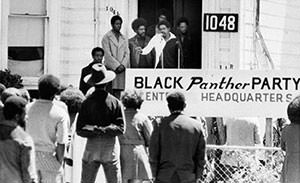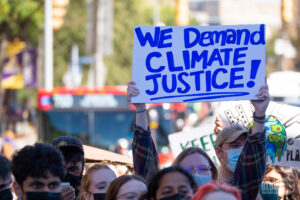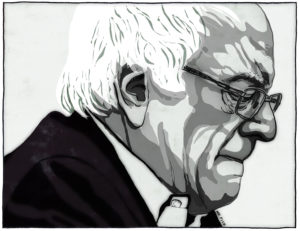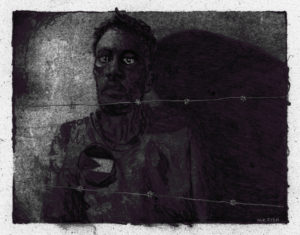There’s Nothing Racist About Gun Control … Anymore
Just when you thought the debate over gun control couldn't get any more twisted, the old claim has been revived that slavery might not have lasted so long in America if black people had been granted the right to bear arms at the outset of their arrival in the new world.
Just when you thought the debate over gun control couldn’t get any more twisted, the old claim has been revived that slavery might not have lasted so long in America if black people had been granted the right to bear arms at the outset of their arrival in the new world. Raised during a CNN interview by Washington, D.C., publicist Larry Ward, one of the principal organizers of the Gun Appreciation Day rallies staged Jan. 19 and a staunch defender of the NRA, the comment seemed to those unfamiliar with such thinking like material culled from a dark stand-up comedy routine.
Far from being funny, Ward’s view is part and parcel of a simplistic and embittered fundamentalism that has dominated political discourse on gun rights and the Second Amendment for decades and embraces the twin beliefs that any new gun control measures would not only be unconstitutional but also racist.
Both beliefs are nonsense, but not without a kernel of distorted truth. And we can thank Ward and other like-minded pro-gun zealots both within and outside of the NRA for helping to renew public interest in uncovering the truth behind the nation’s gun rights history. Understanding that history, especially in the aftermath of the Sandy Hook massacre, is vital both to our efforts to achieve sensible gun control reform and to the more general task of demystifying the Second Amendment’s meaning and scope.
Let’s begin the process with a sad admission: Our gun rights history indeed is stained with racism, commencing with particular force in the Colonial South, where blacks, both slave and free, were prohibited from owning firearms.
In “The Hidden History of the Second Amendment,” a 1998 law review article that is only now gaining notice beyond academic circles, professor Carl Bogus of Roger Williams University School of Law in Rhode Island, reminds us that slavery was not just an economic and political institution but a “gigantic police system.” The primary means of enforcing the system were the “slave patrols,” armed groups of white men whose job was to ensure that blacks were not wandering or gathering where they were not permitted, engaging in suspicious activity or acquiring forbidden weapons. The old South, where slaves often outnumbered whites by large margins, lived in constant fear of slave revolts and over time, in places such as Virginia, South Carolina and Georgia, the functions of the slave patrols were taken over by state militias.
Bogus also makes the claim — disputed, of course, not just by the NRA but by the current Republican majority on the Supreme Court — that the Second Amendment wasn’t designed to protect an individual right to bear arms, but at least in part to prevent the federal government under the newly ratified Constitution from usurping control of state militias and undermining their slave patrol duties.
Although divining the original intent of the Founding Fathers is a risky and often dubious enterprise — and there are even some respected liberal historians who disagree with Bogus on the racist origins of the Second Amendment — the professor offers a compelling account that James Madison, the amendment’s author, had promised to support the Bill of Rights, including what became the Second Amendment, during the course of his 1789 campaign to win election to the House of Representatives. Madison’s motive was mainly political: to tamp down lingering concerns among some of his anti-Federalist slave-owning constituents that the union would end their way of life.
Whether or not Bogus is correct that the Second Amendment was the offspring of a pro-slavery election campaign promise, the controls against black Americans owning guns continued in the post-Civil War South with the adoption of the notorious Black Codes, often enforced by the Ku Klux Klan and other self-appointed vigilante bands. But slowly, as the nation moved into the 20th century and emerged from the Jim Crow era in response to both the mainstream civil rights movement and the rise of revolutionary black leaders like Malcolm X and the Black Panther Party, who began to call for armed self-defense in the African-American community, attitudes toward gun rights shifted, albeit temporarily, in favor of more racially neutral gun control policies.
The NRA, which was originally founded not as an ideological organization but to promote firearm safety, threw its support behind the Gun Control Act of 1968, the federal law that still regulates the interstate shipment of firearms and prohibits sales to convicted felons, fugitives from justice, minors and inmates of mental institutions, among others. Within a decade, however, the NRA reversed itself as a core of hard-line gun advocates gained control of the organization and eventually transformed it into the lobbying juggernaut we know today, dedicated to an absolutist vision of gun rights and the Second Amendment, and the idea that gun control is racist.
As extreme as that vision may be, the NRA and its allies and shills remain very good at what they do. And given the 300 million guns in circulation in the U.S. and the Supreme Court’s concurrence that the Second Amendment protects the individual right to own firearms, the campaign to reduce gun violence faces stiff hurdles, even if the Obama administration holds fast to its proposals to reinstate an assault weapons ban and expand background checks to gun shows, which account for an estimated 40 percent of all firearm sales. Still, those hurdles are not insurmountable, and there is nothing in the Supreme Court’s recent cases that would render reasonable limitations on Second Amendment rights unconstitutional.
At a minimum, even if no meaningful gun control reforms succeed in the short term, we can and should dispatch to the dustbin the notion that our efforts to achieve such reforms are racist. Despite the ugly twists and turns in the history of American gun rights, and the undeniable racism that once made gun ownership a whites-only privilege, no one should confuse the present call for sensible gun control with racism. No segment of the American public appreciates this fact more than African-Americans, who suffer disproportionately from criminal violence and yet in the wake of Sandy Hook, continue to register the highest degree of support for gun control of any major ethnic group.
Your support matters…Independent journalism is under threat and overshadowed by heavily funded mainstream media.
You can help level the playing field. Become a member.
Your tax-deductible contribution keeps us digging beneath the headlines to give you thought-provoking, investigative reporting and analysis that unearths what's really happening- without compromise.
Give today to support our courageous, independent journalists.






You need to be a supporter to comment.
There are currently no responses to this article.
Be the first to respond.